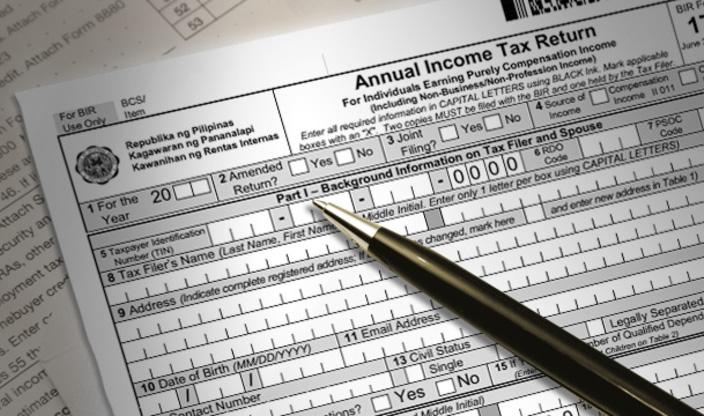Taxes are the lifeblood of the government. This is called the life-blood doctrine in taxation. Without taxes, the government cannot survive with its operation. There will be no infrastructure and projects that will help the community to work effectively. However, taxes can also burden the taxpayer if unregulated.
Thus, there are certain governing rules upon taxes to give justice and enabling those who lesser income to survive in daily living. There are tax exemptions that the government are giving to the less privileged. There are also exclusions allowed to be deducted from the business gross income to come up with the net income enabling for a lesser taxable income.

Tax Exemption in the Philippines: These are some of the allowable exemptions, exclusions or deductions under the law:
- Minimum wage earners are exempted to pay taxes. To qualify as a minimum wage earner, it will depend on which City or Town you live in. Your local government unit follow a list of minimum wage earners according to categories depending on your job. So you can check with your respective local government unit for the category.
- In a recent jurisprudence by BIR, there is an increase from the old 30,000 to the new 82,000 pesos exemption on 13th month pay, bonuses and other de minimis benefits (small benefits) such as gifts and tokens for individual taxpayers. So, this is an automatic exemption deducted from individual taxpayers.
- For individuals, whether employed or in a business, an automatic 50,000 pesos is deducted from the gross individual payment of taxes.
- An additional 25,000 pesos for each dependent child for up to a maximum of four children is given as a deduction to gross income. Dependent child means a child who is below 21 years old, living with parents, and has no employment.
- In business, allowable deductions from gross income are expenses incurred directly related to business operations like salary/wages, gasoline, purchases, administrative expenses, rent, utility bills and others.
- Allowable deduction of 2,400 annual payment on health/hospitalization insurance is allowable deduction to gross income.
- Other allowable deductions for business are charitable and other contributions, research and development, depreciation, depletion, bad debts, interest expense, taxes, losses, and pension trust.
Finally, there are cases when you are confuse if a certain transaction is taxable or not. Here is a list of some transactions that you are not required to pay income tax:
- Given gifts out of generosity.
- Inheritance
- Prizes won by athletes representing the country.
- Advance payment for services not yet rendered.
- Income of OCW and Seamen from their employment abroad.
- Proceeds of swindling, embezzlement, theft or robbery.
- Separation pay of an employee where his severance from work is not his fault.
- Loan proceeds.
- Terminal leave pay of government employees.
- Life insurance proceeds received by beneficiaries.
- Donations
- Benefits and allowances such as longevity pay, subsistence allowance and hazard pay granted to uniform policemen and jail guards.
- Lottery winnings and those from sweepstakes.
There is still a long list of deductible and items not subject to income tax under the Philippine law. To guide you with the decision if you need to pay tax or not, just remember that money acquired from sources not considered as income are not subject to income tax.
Sources: National Internal Revenue Code, Comprehensive Reviewer in Taxation, Virginia Lim, 2010